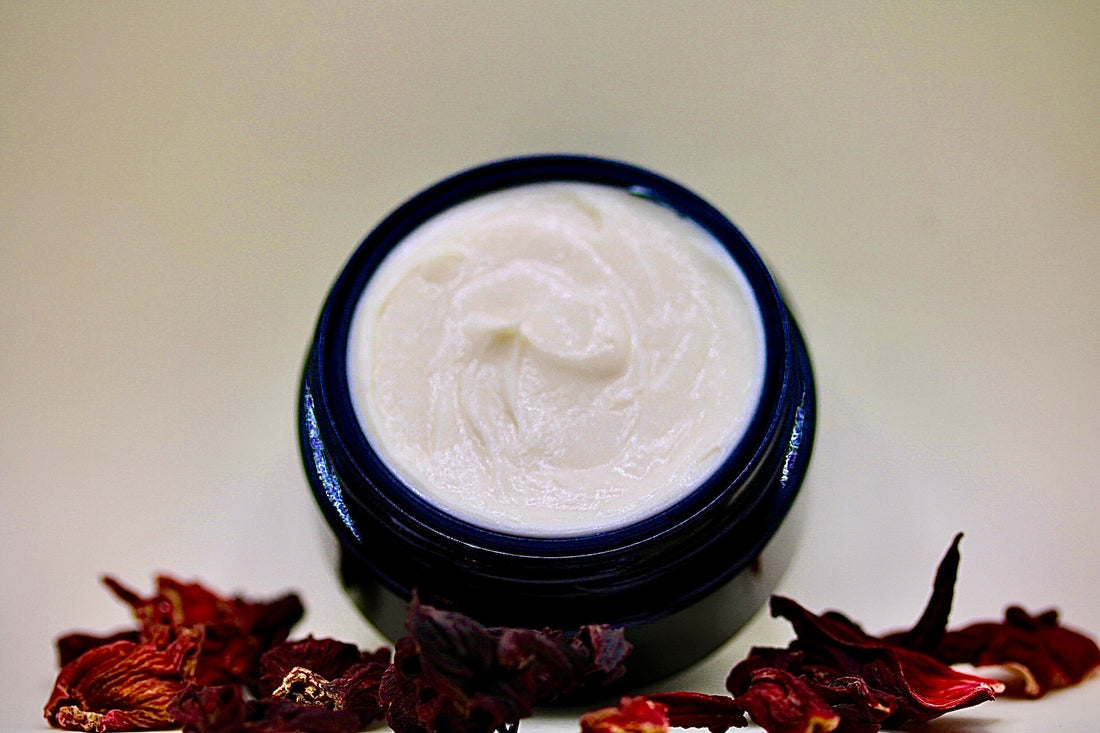
Why Hibiscus Is a Skincare Superstar for Radiant, Youthful Skin
Share
Few ingredients rival the transformative power of hibiscus in natural vegan skincare. Known as the “Botox plant” for its skin-firming magic, hibiscus is a cornerstone of Oyabloom’s botanical skincare philosophy, blending nature’s wisdom with science to deliver radiant wellness. Let’s explore why this vibrant flower is your skin’s new best friend and how Oyabloom harnesses its benefits for glowing, healthy skin.
The Science Behind Hibiscus’s Skincare Benefits
Hibiscus is packed with bioactive compounds that work wonders for your complexion. Here’s why it’s a superstar in natural luxury skincare:
-
Antioxidant Powerhouse: Hibiscus is rich in anthocyanins and vitamin C, potent antioxidants that neutralize free radicals caused by UV rays and pollution. This helps prevent premature aging, keeping your skin vibrant and youthful.
-
Natural Exfoliation: Hibiscus contains alpha-hydroxy acids (AHAs) like citric and malic acid, which gently exfoliate dead skin cells, revealing a brighter, smoother complexion.
-
Firming and Lifting: Its natural AHAs and flavonoids boost collagen production and improve skin elasticity, reducing the appearance of fine lines and giving a lifted, toned look—perfect for a holistic skincare routine.
-
Hydration Hero: Hibiscus’s mucilage, a natural humectant, locks in moisture, leaving skin plump and dewy. This makes it ideal for all skin types, from dry to oily, seeking clean beauty products.
-
Soothing and Balancing: With anti-inflammatory properties, hibiscus calms redness and irritation, promoting a harmonious, even-toned complexion that glows with vitality.
At Oyabloom, we source our hibiscus sustainably, ensuring every product is free of parabens, phthalates, sodium lauryl sulfates, and propylene glycol, delivering pure, effective results you can trust.
How Hibiscus Enhances Your Skincare Ritual
Incorporating hibiscus into your routine is like giving your skin a nourishing embrace from nature. Use Oyabloom’s Rose Tulsi Hibiscus hydrating cream to repair and firm. Here's what hibiscus does for your skin:
- Exfoliates and Brightens: Hibiscus contains natural AHAs, like citric and malic acids, which gently exfoliate dead skin cells, promoting cell turnover. This helps reveal smoother, brighter skin and fades hyperpigmentation or dullness over time.
- Fights Aging: Loaded with antioxidants, particularly anthocyanins, hibiscus neutralizes free radicals that cause premature aging. It also inhibits elastase and collagenase, enzymes that break down collagen and elastin, helping maintain skin firmness and reduce fine lines and wrinkles.
- Hydrates and Softens: Hibiscus extract is a natural humectant, drawing moisture to the skin for a plump, hydrated feel. Its mucilage content also soothes and softens the skin, improving texture.
- Improves Skin Elasticity: By supporting collagen production and protecting against elasticity loss, hibiscus helps keep skin taut and youthful, contributing to its "Botox-like" reputation.
- Soothes and Calms: Its anti-inflammatory properties make it great for sensitive or irritated skin, reducing redness and calming conditions like eczema or rosacea.
- Antimicrobial Benefits: Hibiscus has mild antibacterial properties, which can help control acne-causing bacteria and keep pores clear.
Why Oyabloom Loves Hibiscus
Our love for hibiscus goes beyond its skincare benefits—it’s a symbol of nature’s ability to heal and uplift. By blending hibiscus with other plant-based skincare ingredients, Oyabloom creates luxurious, science-backed products that nourish your skin and the planet.
Ready to experience hibiscus’s magic? Explore Oyabloom’s natural vegan skincare collection and discover how botanical skincare can transform your skin. Join our community on Instagram for more clean beauty tips and rituals that spark radiant wellness!
